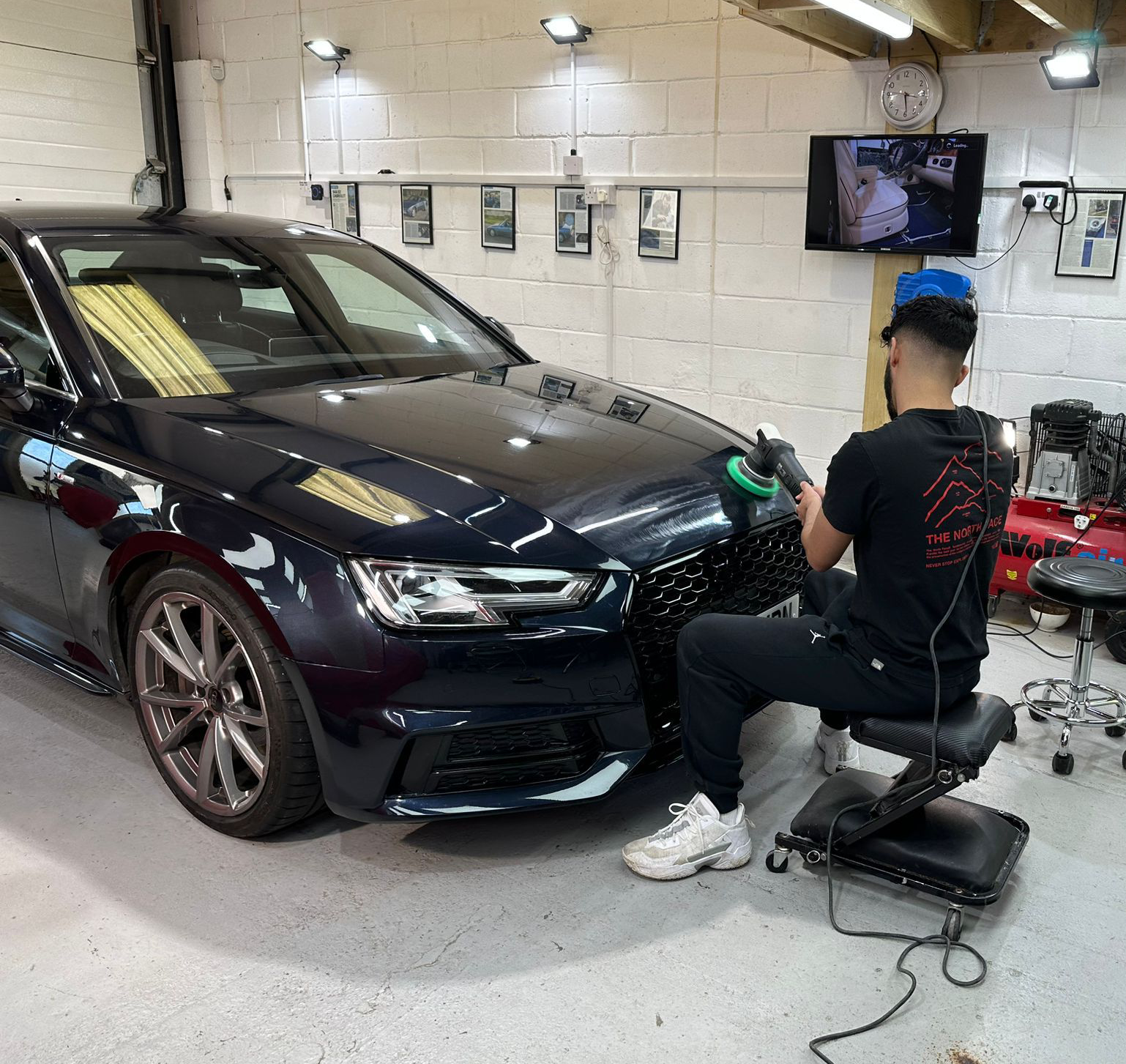First, What Is Polishing?
You could say there are a few different forms of what may be referred to as “polishing’. Maybe you’ve heard them described as cutting, refining, restoring, compounding or a number of other names and sub-categories. The first thing to remember though, is that on a very basic level, all these terms mean the same thing.
Polishing, whether that’s by hand or machine on paintwork or even gloss plastics, is simply the mechanical (or physical) removal of defects through surface abrasion. For the most part, the process involves abrading the top layer to remove a microscopic amount. This in turn smooths out the defects creating a flatter surface. This also causes light to bounce off in a more uniform direction, levelling the optical finish, making the surface appear deeper and shiner. Polishing then, is a bit like exfoliating for cars!
What distinguishes say, cutting and refining from one another is the intensity of the products used for the desired result. A coarse cutting compound for example, will be more abrasive and remove more of the surface material more quickly. While a finer finishing compound or polish will have a much less aggressive level of cut and be designed to smooth out the surface on an even more microscopic level, inflicting scratches so tiny that they simply can’t be seen.
Think of it as just like sanding down a block of wood. A coarse sandpaper will take away a large amount of material quickly but leave a noticeably unrefined finished. Following up with varying degrees of finer sandpaper smooths the surface to a level that’s pleasing to the touch and pleasing to the eye. It’s exactly the same idea when polishing paintwork, just on a more infinitesimal level.

And remember…
The way you keep your car reflects your overall personality. And after all these benefits, you must be convinced about the advantages of car polishing for your vehicle. It is not only about beautifying the interiors of your car but dissipating the visible blemishes.
We at Detailed Auto are proud to provide premier car detailing services throughout Cambridgeshire, including machine polishing. If your car’s paint has seen better days, reach out to our team of professionals!
First, What Is Polishing?
You could say there are a few different forms of what may be referred to as “polishing’. Maybe you’ve heard them described as cutting, refining, restoring, compounding or a number of other names and sub-categories. The first thing to remember though, is that on a very basic level, all these terms mean the same thing.
Polishing, whether that’s by hand or machine on paintwork or even gloss plastics, is simply the mechanical (or physical) removal of defects through surface abrasion. For the most part, the process involves abrading the top layer to remove a microscopic amount. This in turn smooths out the defects creating a flatter surface. This also causes light to bounce off in a more uniform direction, levelling the optical finish, making the surface appear deeper and shiner. Polishing then, is a bit like exfoliating for cars!
What distinguishes say, cutting and refining from one another is the intensity of the products used for the desired result. A coarse cutting compound for example, will be more abrasive and remove more of the surface material more quickly. While a finer finishing compound or polish will have a much less aggressive level of cut and be designed to smooth out the surface on an even more microscopic level, inflicting scratches so tiny that they simply can’t be seen.
Think of it as just like sanding down a block of wood. A coarse sandpaper will take away a large amount of material quickly but leave a noticeably unrefined finished. Following up with varying degrees of finer sandpaper smooths the surface to a level that’s pleasing to the touch and pleasing to the eye. It’s exactly the same idea when polishing paintwork, just on a more infinitesimal level.
And remember…
The way you keep your car reflects your overall personality. And after all these benefits, you must be convinced about the advantages of car polishing for your vehicle. It is not only about beautifying the interiors of your car but dissipating the visible blemishes.
We at Detailed Auto are proud to provide premier car detailing services throughout Cambridgeshire, including machine polishing. If your car’s paint has seen better days, reach out to our team of professionals!
